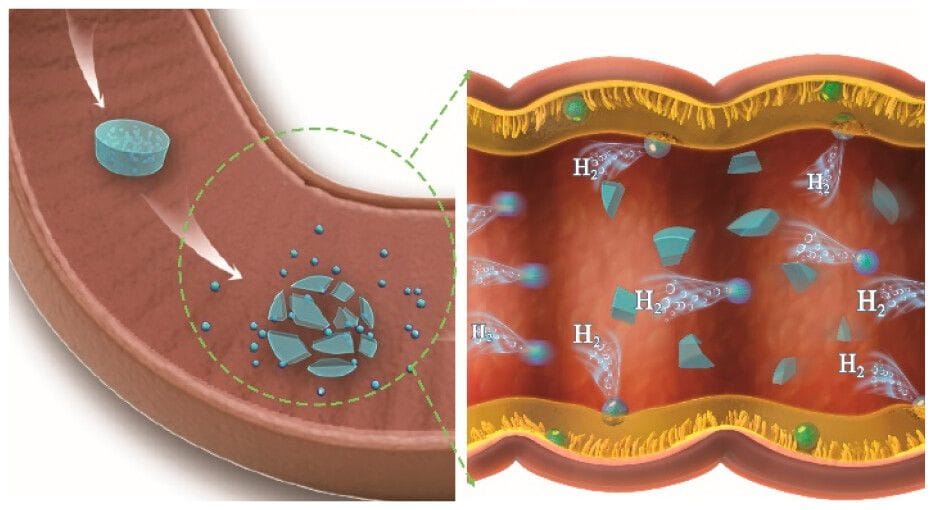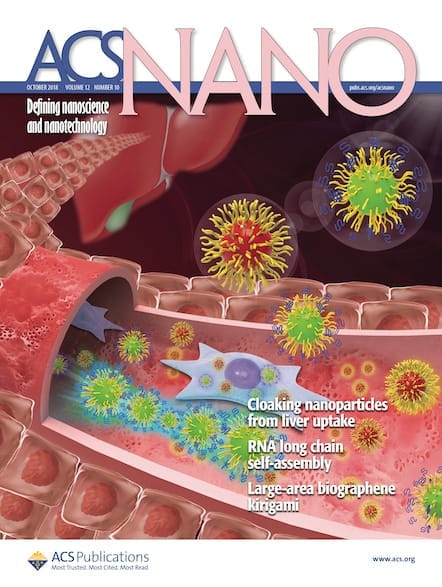Worldwide, there are 537 million people living with diabetes, and many rely on insulin. To date, this has been administered via injection or a pump under the skin, but self-propelling nanoscale robo-capsules could deliver an oral breakthrough.

Diabetes is a growing problem, with rising numbers of both type 1 and 2 worldwide. In healthy people, the pancreas produces insulin in response to ingestion of food. This hormone works to move sugar out of the bloodstream and is a natural part of the energy balance.
In people with type 1 diabetes, an autoimmune response causes the body to destroy the cells that produce insulin; in type 2, insulin secretion declines, or the body becomes resistant to insulin over time, often due to consumption of too many starchy or sugary foods. There are a lot of different anti-diabetic medications available, but everyone with type 1—and about a quarter of people with type 2—will need to take insulin to control their blood sugar.
The first insulin injection was given in 1922, and mass production quickly began, evolving from a simple animal extract to recombinant human insulin and insulin analogs. However, frequent injection often results in discomfort and local tissue infection. Now, more than a century after that first injection, researchers are looking for needle-free insulin options to help ease the burden on people with diabetes—but this requires a way to prevent the protein being destroyed in the stomach before it can reach the bloodstream.
New Progress Toward Insulin in Pill Form

Micro- or nanomotors are self-propelling components capable of converting chemical or physical energy into mechanical motion could be promising for biomedical applications, especially drug delivery. This kind of locomotion enables active and precise cargo delivery that could be useful for treating specific body sites, facilitating stem cell transplants, or for oral vaccination.
Previous teams have demonstrated virtually no leakage during the delivery process, or when keeping loaded micromotors under ambient conditions for at least four months. Now, research published in ACS Nano showcases the successful fabrication of a mini-tablet system based on self-propelled micromotors designed to deliver insulin in the colon.
To achieve this, researchers layered insulin onto magnesium microparticles via electrostatic interactions and liposomes. The resulting micromotors were packed into mini-tablets and coated with esterified starch that helped protect against stomach acid and allowed for controlled release only once the tablets passed into the colon.
During the tablet breakdown process, the reaction of magnesium with water produced a stream of hydrogen gas bubbles, which served as micromotors to propel the insulin toward the colon’s lining for absorption. In animal models, this significantly reduced blood glucose for over 5 hours. The authors report that while more work will be needed to fine-tune this mechanism, it represents an exciting step towards a safe and successful means of injection-free insulin delivery.
Explore Related Research in ACS Journals
Multifunctional Bacteria-Driven Microswimmers for Targeted Active Drug Delivery
DOI: 10.1021/acsnano.7b03207
Enhanced Diffusion and Chemotaxis at the Nanoscale
DOI: 10.1021/acs.accounts.8b00280
Motility of Enzyme-Powered Vesicles
DOI: 10.1021/acs.nanolett.9b01830
Biomimetic Micromotor Enables Active Delivery of Antigens for Oral Vaccination
DOI: 10.1021/acs.nanolett.8b05051
References
- IDF Diabetes Atlas; 10th Edition. https://diabetesatlas.org/
- Insulin and type 2 diabetes. https://www.diabetes.org.uk/guide-to-diabetes/managing-your-diabetes/treating-your-diabetes/insulin/type-2-diabetes
- Beladi-Mousavi, S.M. et al. Active Anion Delivery by Self-Propelled Microswimmers. ACS Nano 2020, 14, 3, 3434–3441.
- Liu, K. et al. Micromotor Based Mini-Tablet for Oral Delivery of Insulin. ACS Nano 2023, 17, 1, 300–311.
